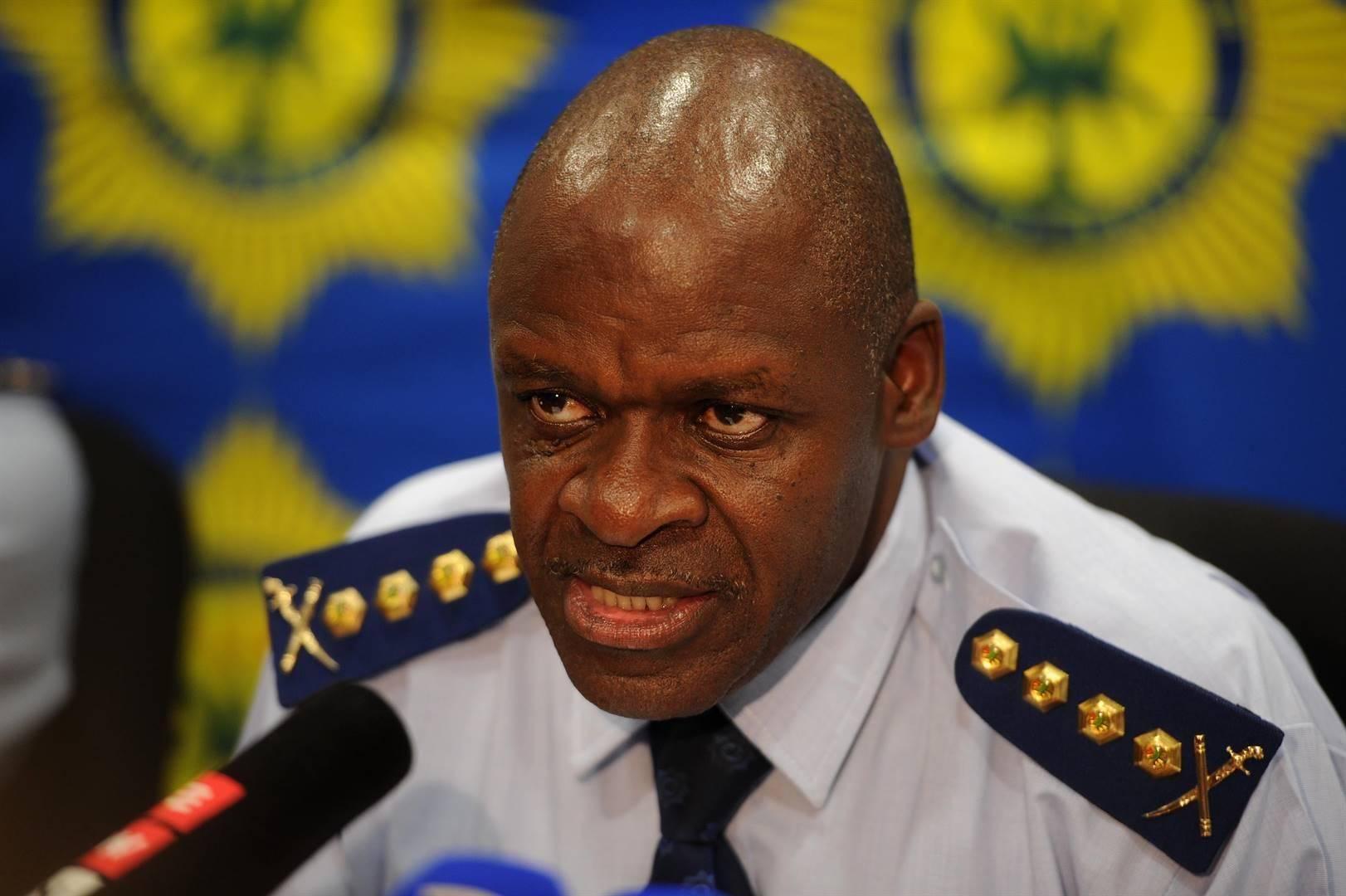Africa-Press – South-Africa. The controversies surrounding Gen Khehla Sitole, and the cloud under which he vacates the office, make it imperative that his successor must be the right person for the job, and not be appointed because of any other reason than that he can do the job, writes Theodore Petrus.
Many of us are now aware that President Cyril Ramaphosa is considering at least five possible candidates for the next National Police Commissioner who will succeed Gen Khehla Sitole. Until we know who the incumbent commissioner will be, there may yet be much speculation.
One fact to highlight in this current development is that Sitole becomes the latest national commissioner to be replaced under a cloud prior to completing his term. Unfortunately this has become a pattern with national commissioners ever since the appointment of Jackie Selebi in 2009. The second fact to consider is that since Selebi, successive national commissioners have been embroiled in criminal activities (including corruption), political controversy or conflict within the higher echelons of the SAPS. READ | EXCLUSIVE: The top 5 candidates in running for police chiefWhat have been the consequences of this? There can be little doubt that the troubles in the highest structures of the SAPS – that have been going on for decades – have had a negative impact on crime, safety and security in the country. Law enforcement cannot function adequately if its critical leadership structures are dysfunctional. The constant drama in the SAPS leadership, which includes the Office of the National Commissioner, do not inspire South African citizens with much confidence in the ability of the police to combat crime, and keep them safe. Negative impact of problems in the SAPS leadership exposed
Several events in recent times have exposed the adverse effects of the problems in the leadership in SAPS. But perhaps the most telling was the riots of July 2021.Just prior to the outbreak of the violence, Sitole had unsuccessfully attempted to overturn a High Court decision that found that he and his deputies at the time were politically compromised. Then the riots occurred and South Africans watched in horror the apparent inability of the SAPS to restore law and order amid the chaos. It could well be argued that one of the reasons for the poor response by the SAPS was that the national commissioner and his deputies were distracted by their legal and political challenges, instead of focusing on their key responsibility, which is to show leadership and direct the response of the SAPS on a national level. Important to appoint the right personHere is a critical question to consider as we wait for the announcement of the appointment of the new national commissioner:
Why is it critically important to appoint the right person for the position?I can venture three important reasons.
Firstly, up until now, the interference of politics in the affairs and activities of the SAPS has not done the organisation any favours. The political conflicts in leadership of the SAPS have weakened the entire organisation, which has resulted in the ongoing poor public image of the SAPS. The controversies surrounding Sitole, and the cloud under which he vacates the office, make it imperative that his successor must be the right person for the job, and not be appointed because of any other reason than that he can do the job.
Secondly, we should not forget that many of the current problems in the SAPS were inherited from the past. We all know the role of the SAPS in enforcing the whims of the apartheid state, and the damage this did to its reputation as the protector of the people.READ |Discord, division and distrust: Why search for SA’s next top cop must be open to scrutinyFor many, this perception of the post-1994 SAPS has not improved, especially if we consider incidents such as Marikana, the death of Andries Tatane in Ficksburg, and the death of Mthokozisi Ntumba during the Wits student protests in 2021. The national commissioner has the daunting task of leading the SAPS in a direction that clearly seeks to distinguish the current force from its historical predecessor. The examples mentioned above would suggest that no post-1994 SAPS commissioner has so far succeeded in this.
Thirdly, and finally, is that the wider context of the global threat of terrorism and its impact on South Africa, as well as the local context of crime, make it imperative that the right person be appointed to the position. What is the message that is sent to the international community and to local South Africans when a national commissioner is either involved in crime himself, or is too distracted by political in-fighting to focus on his responsibilities? Unfortunately, the only message that is heard loud and clear is that South Africa is open for business for terrorism and criminality. What are the consequences of this? Higher crime levels and increasing terrorist threats have a negative impact on investor confidence, and the citizenry feels unsafe.
We can only hope that those who are responsible for appointing the next commissioner will apply sound judgment, and truly have the interests of the citizens and the country at heart. If they don’t, we can look forward to more soap operas in the police leadership. But rather than be entertained by them, we will have to deal with the consequences.
– Theodore Petrus is an associate professor in Anthropology at the UFS.Disclaimer: News24 encourages freedom of speech and the expression of diverse views. The views of columnists published on News24 are therefore their own and do not necessarily represent the views of News24
For More News And Analysis About South-Africa Follow Africa-Press






